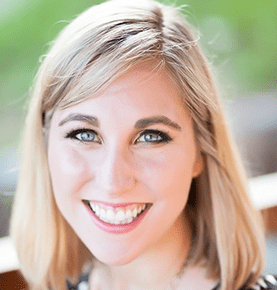From a reader:
Dear Prof. McKnight,
I just finished listening to your interview on Midday Connection and am thrilled with the topic of your most recent book about Mary [The Real Mary: Why Evangelical Christians Can Embrace the Mother of Jesus]. I recently wrote a Luke-based devotional called Divine Duct Tape and through it became very connected to Mary through her struggle to understand her son and the devastating, unexpected path he had to forge. As I studied Mary’s song and Zechariah’s too, however, I discovered a question I hope you can answer.
How are we to treat or understand these kinds of passages–these songs? It’s almost like Luke breaks into a musical. I know some kinds of scripture are poetic, some historical, some didactic, some wisdom, some prophetic promises. So many kinds of texts, yet all preserved by God to know him better and our need for him.
But in terms of ancient readers, how did they understand them and how are we? I can’t imagine that Mary and Zechariah (or Moses for that matter in his song in the OT) just burst into song like some sort of “Jesus Christ Superstar,” as they seem to sound in Luke’s text (Mary’s song, for example, seems to be within a conversation she is having with Elizabeth). I am puzzled about how these songs came to us from the mouths of their speakers. Do we know? I don’t doubt that they are genuine. Just puzzled about how they got there.
I would appreciate any insight you can offer. And thank you about your book about Mary. I am thrilled to hear someone speak of her in such an admiring but non-idealized, human way.
Blessings to you,
Kelli Anderson
www.kellira.com
Kelli,
This is a good set of questions and it surprises me at times that more people don’t ask them. When it comes to the Song of Mary, the Magnificat, I assume the only way Luke got them was that Mary told others or perhaps Luke himself. But I suspect the question gets deeper. I suspect the question is more about how ordinary people break into such beautiful music and poetry. I know I’ve asked that one a number of times.
Let’s begin with some basic options:
Some people they are the result — purely — from divine inspiration and the speakers (Mary, Zechariah) were transported to new heights, given divine insights and capable of poetic language because of that divine inspiration. Yet others think the songs are so poetic and majestic they had to be put on the mouths of their speakers by later Christians who imagined themselves into the mind and heart of Mary and Zechariah — a kind of “This is the sort of thing they must have said!” I don’t think we need to postulate either a miracle or that the songs come from others.
Two more options: some think these are the very words of Mary, and she was capable because she was bright and thoughtful and pious, and Zechariah, and he was capable and bright and wise and experienced and knowledgeable.
I find the fourth option most likely: even though I like studying these sorts of things, I’m not convinced we have the tools or evidence to say “Mary couldn’t have said that” or “Zechariah wouldn’t have been able to talk like that”. So, I prefer explanations that don’t assume they couldn’t have said such things. So what I think is most likely, and I don’t think we can know this with utter certainty, is something like this:
In the case of Mary, who was probably about 14 or 15 yrs old, I suspect she had a profound experience of perceiving what God was doing with her. I’m confident she burst into gratitude and joy and consolation from the moment she was convinced her baby was to be Messiah. I suspect also that she pondered on these things day in and day out. I suspect she asked theologians and priests and friends and family about messianic prophecies — and at some date after that moment, and I don’t know how long but probably not all that long afterwards, put into poetic form what she experienced.
So perhaps it was like this: she experienced joy and expressed her joy to Elizabeth in the Magnificat and said things like the Magnificat. Over time those expressions became more and more poetic so that eventually someone wrote down her own poem of praise to God for being chosen to be mother of Messiah.
I can’t prove this. I can’t prove either — apart from saying something like “The Bible says it so it must have happened just like that” — that she said those very words when she encountered Elizabeth. So the moment we are pushed into thinking about things like this we have to do our best with the kind of knowledge we have. It’s a stretch to think a young girl could suddenly burst into song like this, though I don’t think it’s impossible and neither would I eliminate the transcending power of the Spirit in such a moment. But if I had to guess, I’d choose option four, or three.
What do you think?











